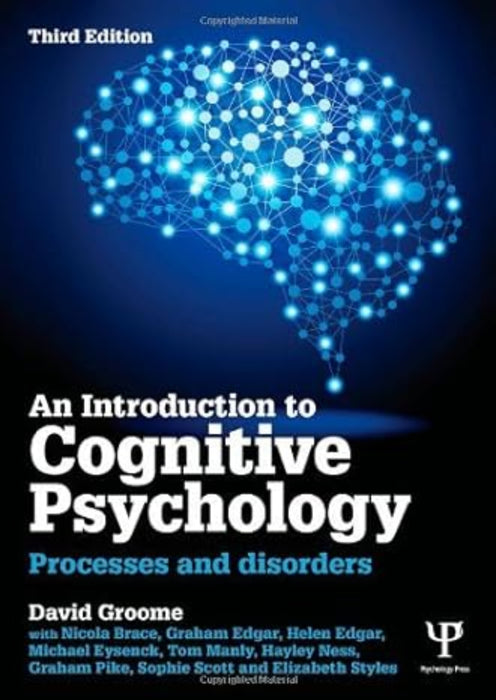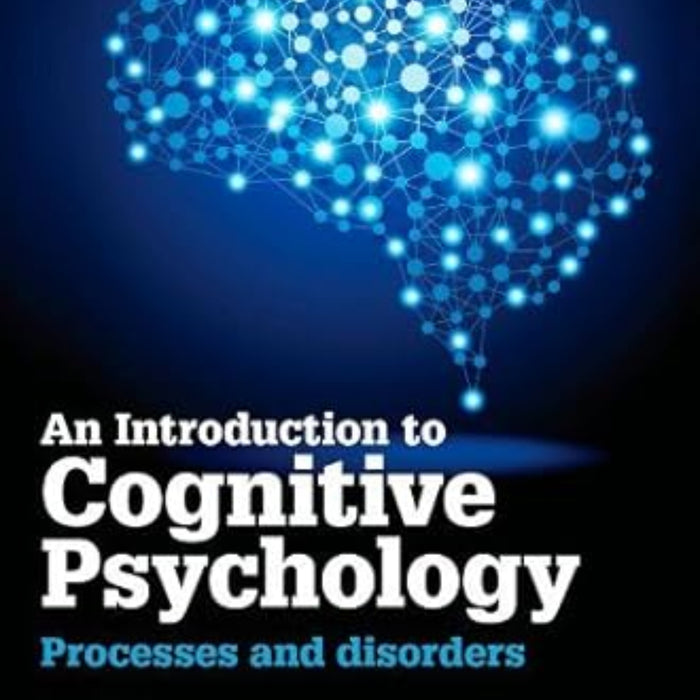Introduction To Cognitive Psychology Process And Disorders 3rd Edition
- Publisher: PSYCHOLOGY
- Availability: In Stock
- SKU: 51634
- Number of Pages: 470
Rs.1,050.00
Rs.1,295.00
Tags: Attention , Attention Deficits , Behavioral Psychology , best books , Best Price , Best Selling Books , Clinical Psychology , Cognitive Development , Cognitive Development Theories , Cognitive Disorders , Cognitive Models , Cognitive Psychology , Cognitive Psychology Textbook , Cognitive Rehabilitation , Cognitive Research , David Groome , Decision Making , Emotional Processing , Experimental Psychology , Information Processing , Introduction to Cognitive Psychology , Learning , Memory , Memory Disorders , Memory Systems , Mental Disorders , ONLINE BOOKS , Online Bookshop , Perception , Problem Solving , Psychological Research , Psychological Theories , Psychology , Psychopathology , Thinking
Introduction:
Introduction to Cognitive Psychology: Process and Disorders (3rd Edition) by David Groome provides a comprehensive and accessible introduction to the field of cognitive psychology, particularly focusing on both the normal processes and disorders that can occur in human cognition. The book covers the core concepts of cognitive psychology, as well as the challenges posed by various cognitive disorders.
Key Points:
-
Fundamental Cognitive Processes:
- The book explores key areas of cognitive psychology such as perception, attention, memory, thinking, language, and problem-solving. It provides a deep dive into how these processes function in the brain and how they affect behavior in everyday life.
-
Cognitive Disorders:
- A unique aspect of this book is its focus on cognitive disorders. Groome examines how various neurological conditions, diseases, and disorders such as dementia, amnesia, aphasia, and Parkinson's disease can impair cognitive function. These sections provide a comprehensive understanding of how cognitive processes break down in clinical settings.
-
Cognitive Neuroscience:
- The book integrates findings from cognitive neuroscience to explain the brain's role in cognitive processes. It discusses the relationship between brain structures (such as the prefrontal cortex and hippocampus) and cognition, offering insights into how the brain supports memory, learning, and decision-making.
-
Research Methods in Cognitive Psychology:
- Groome emphasizes the importance of empirical research methods used to study cognitive psychology. The book covers experimental methods, neuroimaging techniques, and neuropsychological assessments that help researchers understand the workings of the brain and cognition.
-
Real-World Applications and Implications:
- The book highlights the real-world applications of cognitive psychology in various fields like education, healthcare, forensic psychology, and artificial intelligence. Understanding cognitive processes can lead to better interventions for cognitive disorders and contribute to improving cognitive function.
Why Read This Book?
- Comprehensive Overview: It offers a thorough introduction to both cognitive processes and the disorders that affect them, making it valuable for students and practitioners alike.
- Clear and Engaging Writing: David Groome’s writing is clear and accessible, providing complex psychological concepts in an easy-to-understand manner.
- Clinical Relevance: The book’s focus on cognitive disorders offers readers important knowledge on how conditions like Alzheimer's and aphasia impact cognitive functions, making it essential for those interested in clinical psychology or neuropsychology.
Conclusion:
Introduction to Cognitive Psychology: Process and Disorders (3rd Edition) is an excellent resource for students and professionals in the field of psychology. It provides a balanced perspective on cognitive processes and disorders, integrating theoretical knowledge with practical insights. Whether you are new to cognitive psychology or looking to deepen your understanding, this book offers essential information to understand the mechanisms of the mind and the challenges faced by individuals with cognitive disorders.

























